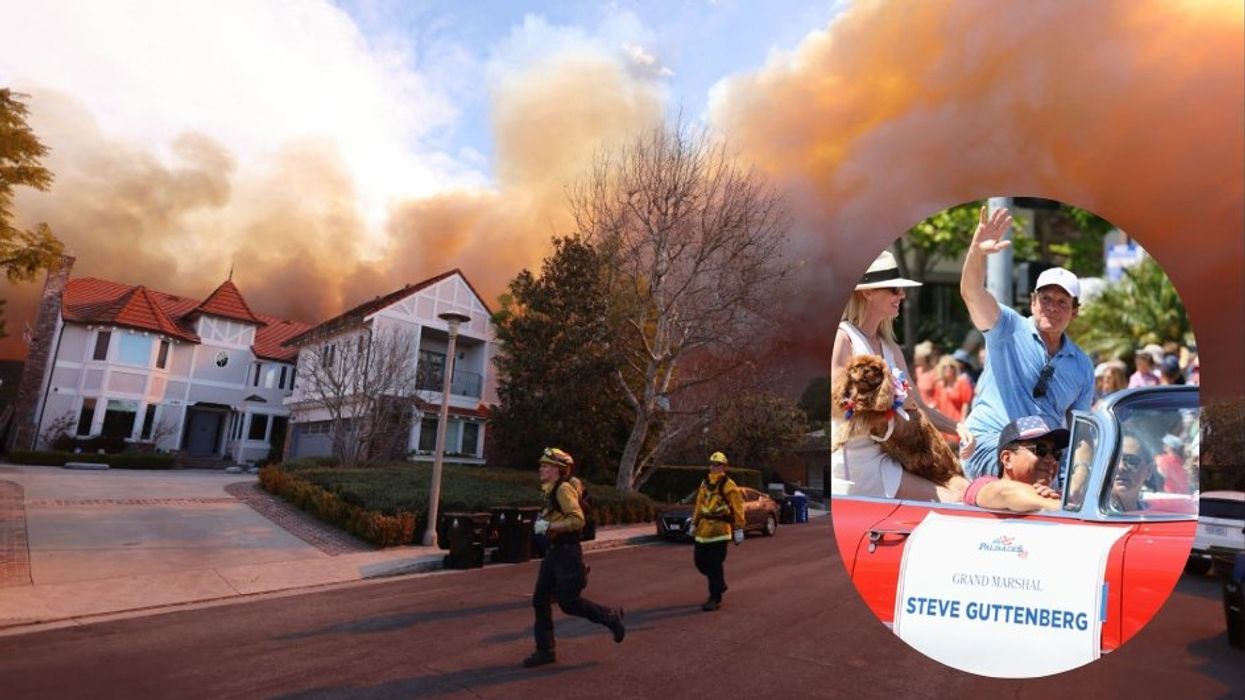
© 2025 Blaze Media LLC. All rights reserved.
The unknowns are the who, what, how and when it will all happen.
We all know how the government shutdown drama will end.
President Barack Obama will reopen the federal government. Congress will increase the nation’s borrowing limit so that the country’s finances are in order. Obamacare will remain a reality.
The unknowns are the who, what, how and when it will all happen.
Right now President Obama, Republican House Speaker John Boehner, and Democratic Senate Majority Leader Harry Reid are boxed into unsustainable positions. The President will not negotiate, Boehner cannot repeal or defund Obamacare and Reid will not compromise with House Republicans.
So we need to look beyond those major players in the debate and toward those most likely to achieve a consensus.
With a wink-and-a-nod blessing from their leaders, critical House Republican committee chairmen such as U.S. Reps. Dave Camp on Ways & Means, Fred Upton on Energy & Commerce, Paul Ryan on the Budget and Hal Rogers on Appropriations are working behind-the-scenes with their Democratic counterparts in the Senate, namely Max Baucus on Finance, Patty Murray on the Budget and Barbara Mikulski on Appropriations.
They are all accomplished legislative experts who have worked together over the years by forging the professional relationships and trust that are so essential in such delicate situations. They are also unencumbered by the divisions of their national party leaders.
We will rely upon their years of institutional knowledge and commitment to answer the second question of what their final product will include.
At its core a “Grand Bargain” will likely encompass the parameters for a functioning and creditworthy government, adjustments to across-the-board automatic spending cuts passed earlier this year – also known as sequestration – reforming our nation’s entitlement programs such as Social Security and Medicare, fixes to Obamacare and tax reform.
The third question is how will they get there? The answer is that it will happen through the messy process of negotiating which our Founding Fathers envisioned and that the American people demand to see.
Some Democrats will want more money for domestic programs in exchange for more defense resources sought by Republicans. There is broad consensus on some basic reforms to entitlements, but differences will remain. The same holds true for Obamacare. And despite their diverging views on how a final package should look, Chairmen Camp and Baucus even hold out the possibility that they can agree on fundamental tax reform that will help stimulate the economy, streamline the tens of thousands of pages in the federal tax code and generate additional revenue.
The process will provide Democrats and Republicans with measures they want and concede to others that they might not like so much.
It should be noted that a compromise certainly won’t happen by creating a panel of outside experts making recommendations to Congress or a “Super Committee” of a handful of party leaders suddenly thrust into the national spotlight.
Such gimmicks have been tried, and they failed miserably. They were an aberration. They had no history or support. Congress has a great way of chewing up these types of temporary creations and spitting them out.
Negotiators will instead need to craft the thoughtful compromises necessary to get 218 bipartisan votes in the House and 60 bipartisan votes in the Senate.
The final unanswered question is when it will happen. It is hard to imagine that such a complex agreement can be resolved within the next two weeks. Congressional negotiators may need to pass a stopgap measure of a limited amount of time to resolve outstanding differences. It might take longer than we like, but it can happen.
I am confident that our nation’s leaders will solve these problems. I served on the House Budget Committee under Chairman John Kasich during the government shutdown in 1995, when we had an ambitious majority of Republicans in the House under the leadership of newly elected Speaker Newt Gingrich and Democratic President Bill Clinton.
The process was just as seemingly insurmountable then as it is now, but critical members of the House and Senate worked together on bipartisan solutions that eventually had the country up and running after a few weeks of a shutdown. We knew there would be no shortcuts and that the overheated rhetoric of Washington’s leaders created unique challenges for us. But we did the necessary hard work and compromising to reach a “Grand Bargain” like the one we need now.
It has happened before, and it will need to happen again.
Feature Photo Credit: James Lawler Duggan/Reuters
–
TheBlaze contributor channel supports an open discourse on a range of views. The opinions expressed in this channel are solely those of each individual author.
Want to leave a tip?
We answer to you. Help keep our content free of advertisers and big tech censorship by leaving a tip today.
Want to join the conversation?
Already a subscriber?
more stories
Sign up for the Blaze newsletter
By signing up, you agree to our Privacy Policy and Terms of Use, and agree to receive content that may sometimes include advertisements. You may opt out at any time.
© 2025 Blaze Media LLC. All rights reserved.
Get the stories that matter most delivered directly to your inbox.
By signing up, you agree to our Privacy Policy and Terms of Use, and agree to receive content that may sometimes include advertisements. You may opt out at any time.


